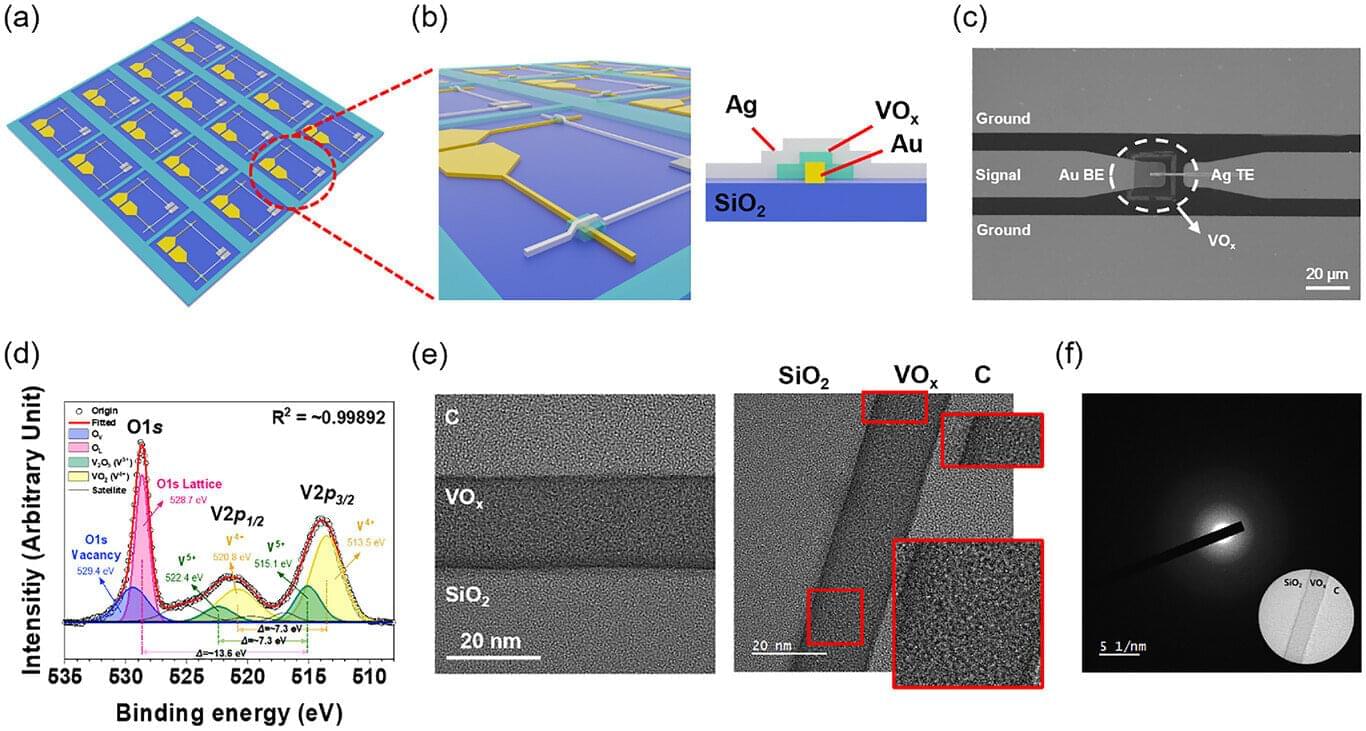A research team affiliated with UNIST has unveiled a new semiconductor device optimized for the next-generation 6G era and autonomous driving, offering low power consumption and nonvolatile operation. This innovative device can also be integrated into variable filter circuits capable of tuning the central frequency band, paving the way for more compact and energy-efficient communication equipment.
Jointly led by Professor Myungsoo Kim of the Department of Electrical Engineering and Professor Tae-Sik Yoon of the Graduate School of Semiconductor Materials and Devices Engineering at UNIST, the team announced the development of nonvolatile radio-frequency (RF) switches based on vanadium oxide (VOx) for next-generation wireless communication systems. The paper is published in Advanced Science.
RF switches are essential semiconductor components in modern wireless communication systems, such as autonomous systems, smartphones, VR, and AR. They control the flow of high-frequency signals within circuits by connecting or disconnecting specific pathways, enabling reliable signal routing.
